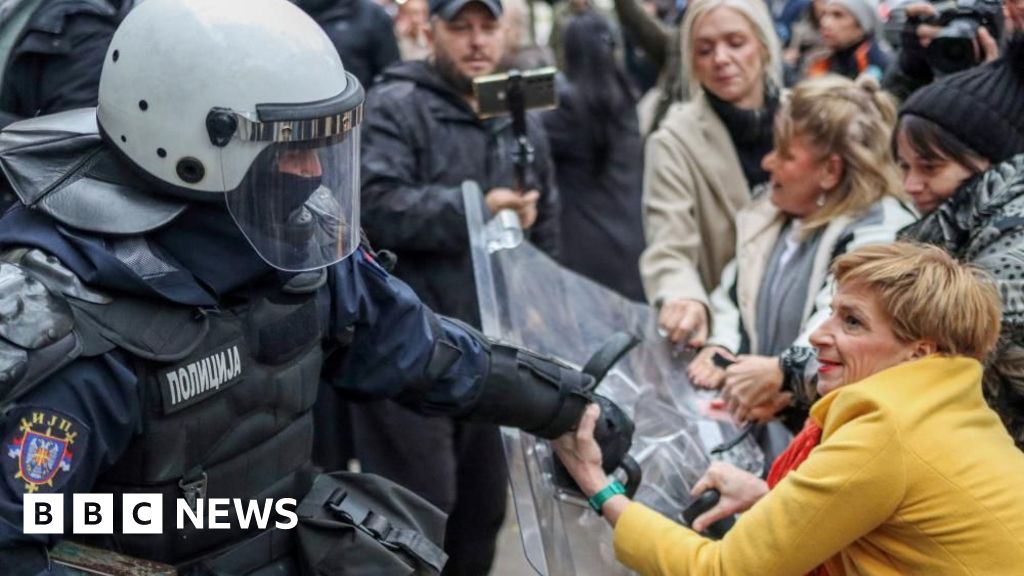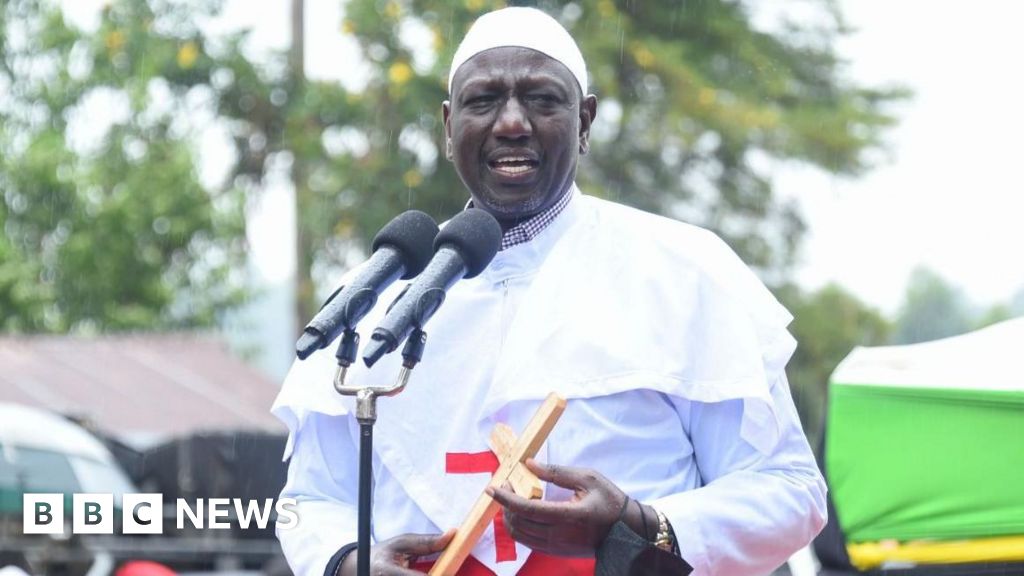In the European Parliament elections on June 9, the far-right, anti-immigration Alternative for Germany (AfD) party came second in Germany — and in the five states in the east of the country, the party, which has extremist factions, even came first. The results alarmed both federal and state governments across all parties.
In September, three of those eastern states — Saxony, Thuringia and Brandenburg — are holding elections. If the AfD becomes the strongest party, as is expected, the others will find it difficult to form a governing coalition to outnumber it, especially as Olaf Scholz's Social Democrats (SPD) and the Greens are so weak that in Saxony and Thuringia they may not even clear the 5% threshold to enter the state parliament.
AfD: High hopes for eastern elections
This is as much a concern for the opposition Christian Democrats (CDU) as it is for the SPD. Although the CDU was by far the strongest German party in the European elections, it came only second in the east of the country (also by a wide margin).
"The results have got under our skin," said Lower Saxony State Premier Stephan Weil, after a conference of the 16 state premiers with Chancellor Olaf Scholz in Berlin this week. "We know that migration plays a role in this context," he added.
There is "an urgent need for action in the execution of migration law, deportation practices and the satisfaction of the need for security," added Reiner Haseloff, CDU state premier of Saxony-Anhalt. While Hesse's CDU State Premier Boris Rhein chimed in: "There is a clear expectation among citizens that we deliver on these crucial issues, and in my opinion the election results have once again made the pressure to act very clear."
In 2022 and 2023, a total of around 596,000 asylum-seekers and well over 1.1 million war refugees from Ukraine came to Germany. According to current estimates, between 280,000 and 300,000 asylum applications are expected again in 2024.
 Germany's state premiers held a conference with Chancellor Scholz in Berlin this weekImage: Hannes P Albert/dpa/picture-alliance
Germany's state premiers held a conference with Chancellor Scholz in Berlin this weekImage: Hannes P Albert/dpa/picture-allianceAsylum procedures and the CDU/CSU
The CDU, along with its Bavarian sister party the CSU, forms the largest opposition group in the Bundestag, and is pushing for asylum procedures to be moved to countries outside the EU as quickly as possible. These could be transit countries that refugees pass through on their way to Europe, or completely different countries.
But SPD Federal Interior Minister Nancy Faeser warned against expecting too much. The UK, for example, has been trying to outsource asylum procedures to Rwanda for several years and still has no viable model, she pointed out at an interior minister conference in Potsdam.
Italy is conducting similar negotiations with Albania, but this measure also has its limits, Faeser warned. "A maximum of 3,000 refugees has been agreed," she said. "That is also a very small number." Third-country regulation is not the "game changer" some hope it is, she said, and in Germany would only be a "small building block" for reducing the number of asylum-seekers.
The German Interior Ministry recently held a hearing with almost 30 experts on the subject of third-country asylum processing. According to Stephan Weil, this resulted in "a whole bag full of questions, problems and obstacles." In the end, the most experts, it turned out, advised against the Rwanda and Albania models.
The refugee aid organization Pro Asyl rejects the idea. Wiebke Judith, legal policy spokesperson for Pro Asyl, called it a "false solution": "Outsourcing asylum procedures leads to more dangerous escape routes, despair among those affected and the danger that people in need of protection will be exposed to serious human rights violations," she said.
Closer cooperation on asylum policy
However, the strengthening of the far right in the European elections has led the state premiers of all parties to move closer together. Along with Chancellor Scholz, they agreed to pursue the idea further and commissioned a study. "The federal states clearly expect the federal government to develop concrete models for conducting asylum procedures in third and transit countries, and to review and amend national and European rules that stand in the way of this," Boris Rhein summarized.
Saxony's SPD Interior Minister Armin Schuster told Deutschlandfunk radio: "We need to act quickly and boldly." He believes that the Social Democrats have understood from the latest election results and analyses that "the most important issue of migration must now simply be tackled."
This will also mean deporting more asylum-seekers, an issue that CDU leader Friedrich Merz has repeatedly been harassing Chancellor Scholz over. Contrary to his announcements that he would deport "on a large scale" and "significantly more and faster," "nothing historic has happened" for months, Merz said in an interview with the Funke media outlet.
From January to April 2024, around 6,300 people were deported from Germany to their home countries. However, some 240,000 are actually officially obliged to leave the country. But in 80% of cases, there are reasons why they cannot be deported: Either they do not have any identification documents, or they come from countries like Syria and Afghanistan that are considered unsafe.
 The CDU state premiers Michael Kretschmer, Reiner Haseloff und Daniel Günther (r to l) demanded an even tougher stance from the chancellorImage: Bernd Elmenthaler/Geisler-Fotopress/picture alliance
The CDU state premiers Michael Kretschmer, Reiner Haseloff und Daniel Günther (r to l) demanded an even tougher stance from the chancellorImage: Bernd Elmenthaler/Geisler-Fotopress/picture alliance Security now more important than helping refugees
This is set to change for people from those countries who commit serious crimes in Germany or are suspected of being Islamist extremists. "It outrages me when someone who has sought protection here commits the most serious crimes," Scholz said in the Bundestag at the beginning of June. "Such offenders should be deported, even if they come from Syria and Afghanistan. In such cases, Germany's security interests outweigh the offender's need for protection."
The Interior Ministry is already looking for "legally and practically viable ways" to make such deportations possible, said Scholz. To this end, the ministry is "in talks" with Afghanistan's neighboring countries, for example, as Faeser confirmed in Potsdam: "We are in very concrete negotiations and are confident that we will be able to do this for this group."
The chancellor and the state premiers also agreed to maintain the additional controls at the borders with the Czech Republic, Poland and Switzerland introduced in October. The joint resolution with the federal government says that the federal police are already using these border controls to turn back refugees entering from another EU member state, if it is legally possible. The EU Return Directive must be revised in such a way that rejections can continue to be carried out "in a practical manner," it says.
The ministers also agreed to introduce a payment card for asylum seekers. It is already in use in some regions and is to be implemented nationwide this summer. Asylum-seekers will then be allowed to have only €50 ($54) in cash per month. Bavaria and Mecklenburg-Western Pomerania want to implement their own system.
This article was originally written in German.
While you're here: Every Tuesday, DW editors round up what is happening in German politics and society. You can sign up here for the weekly email newsletter Berlin Briefing.

 5 months ago
16
5 months ago
16









